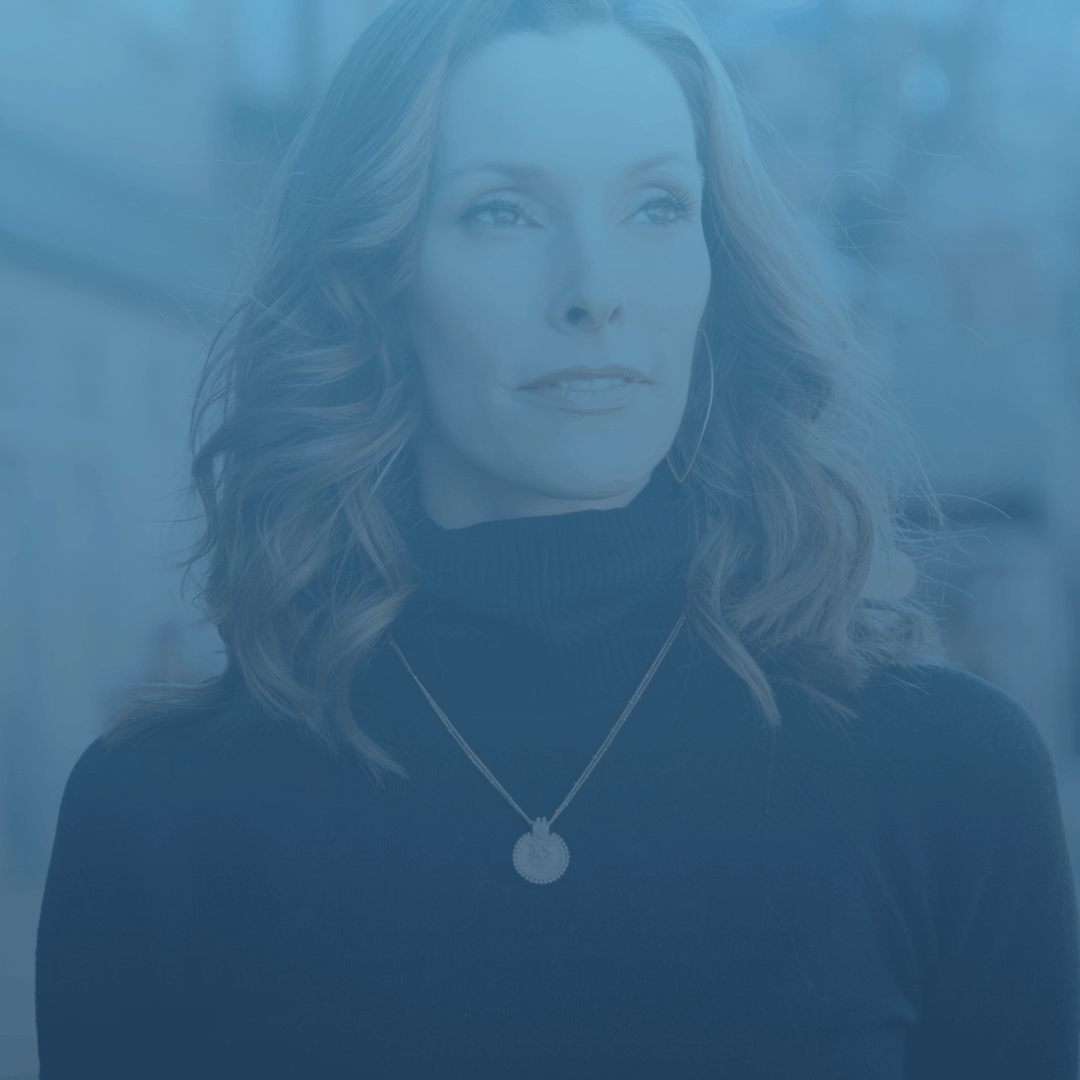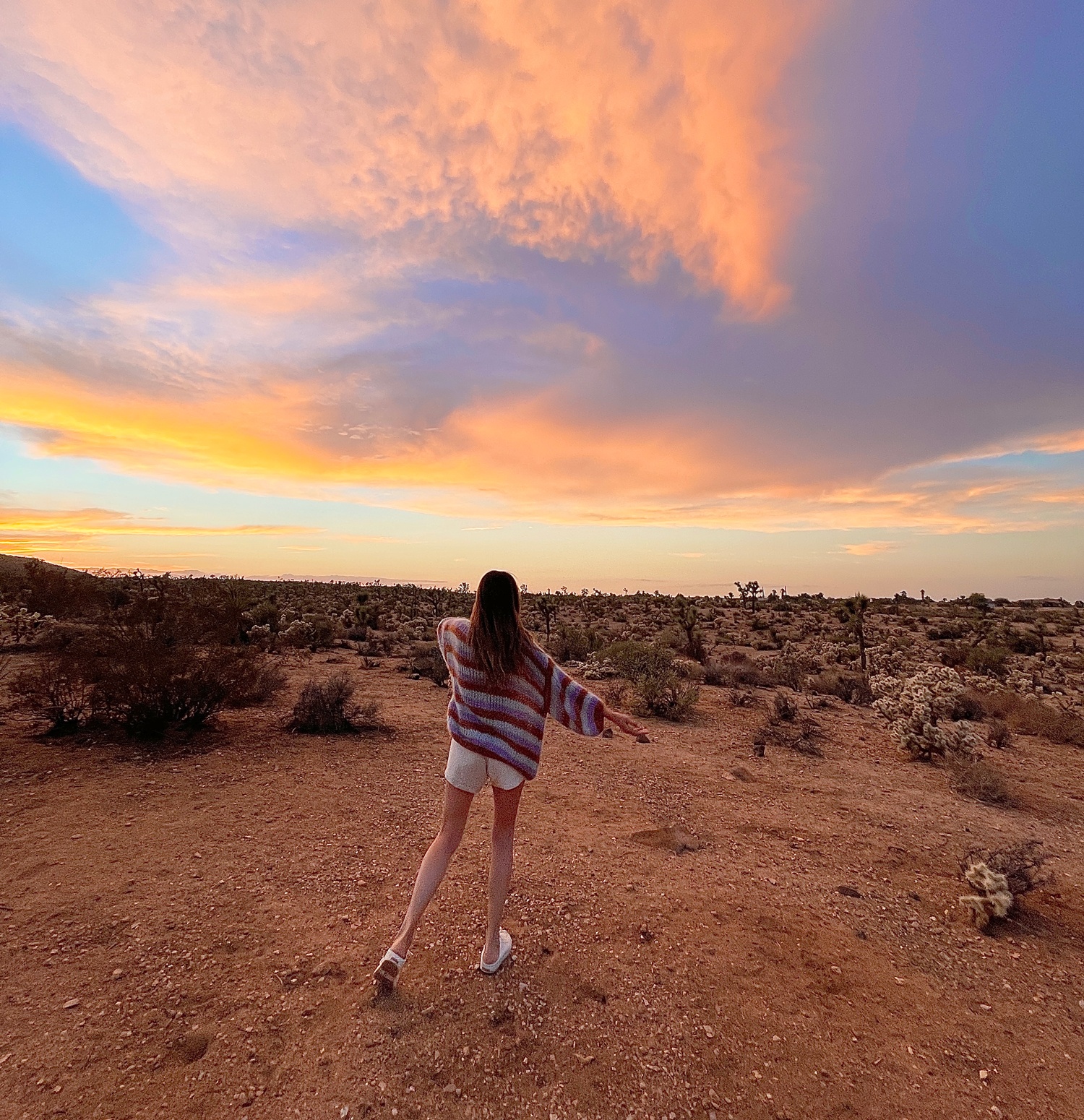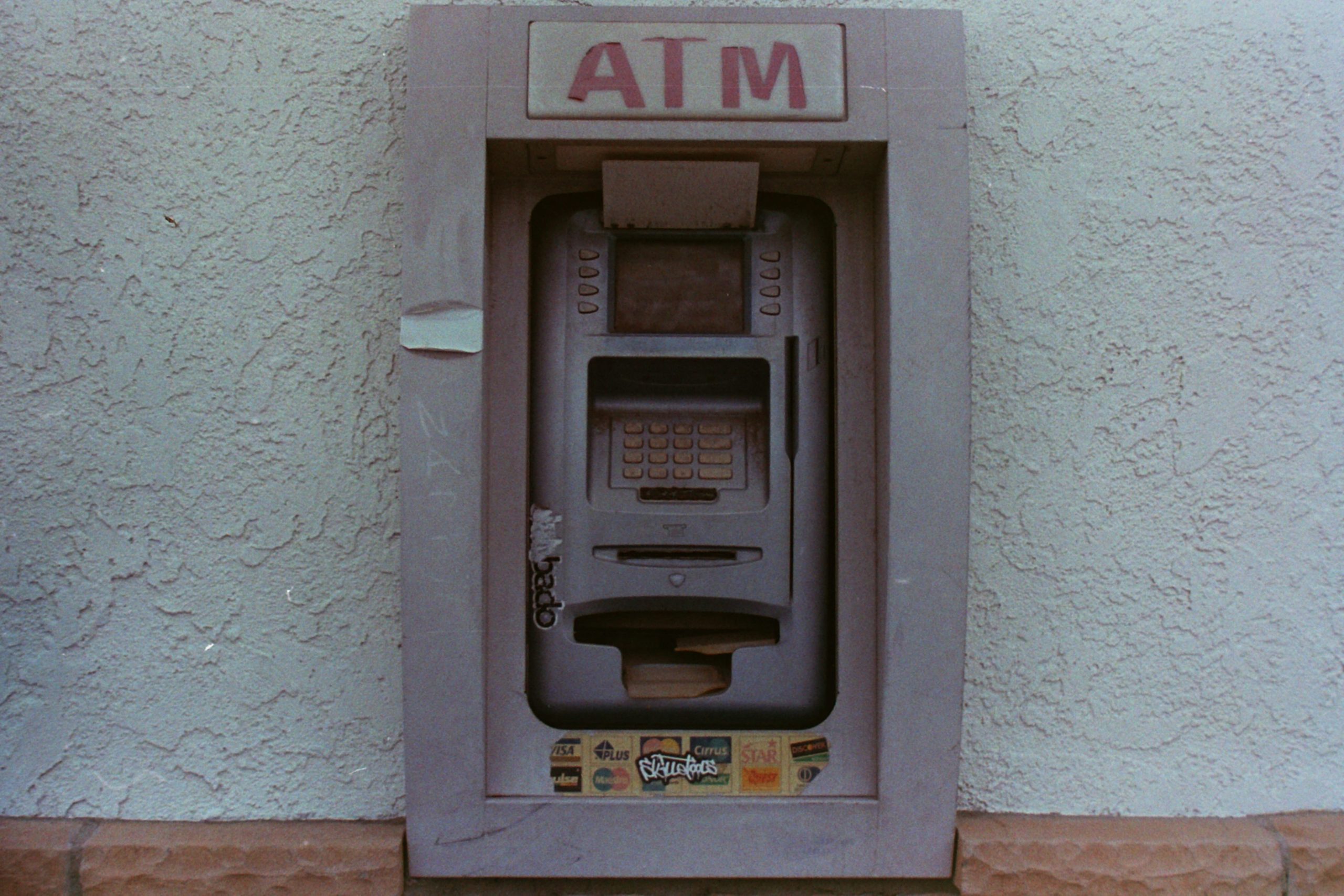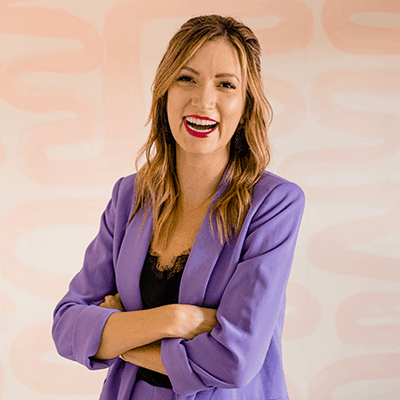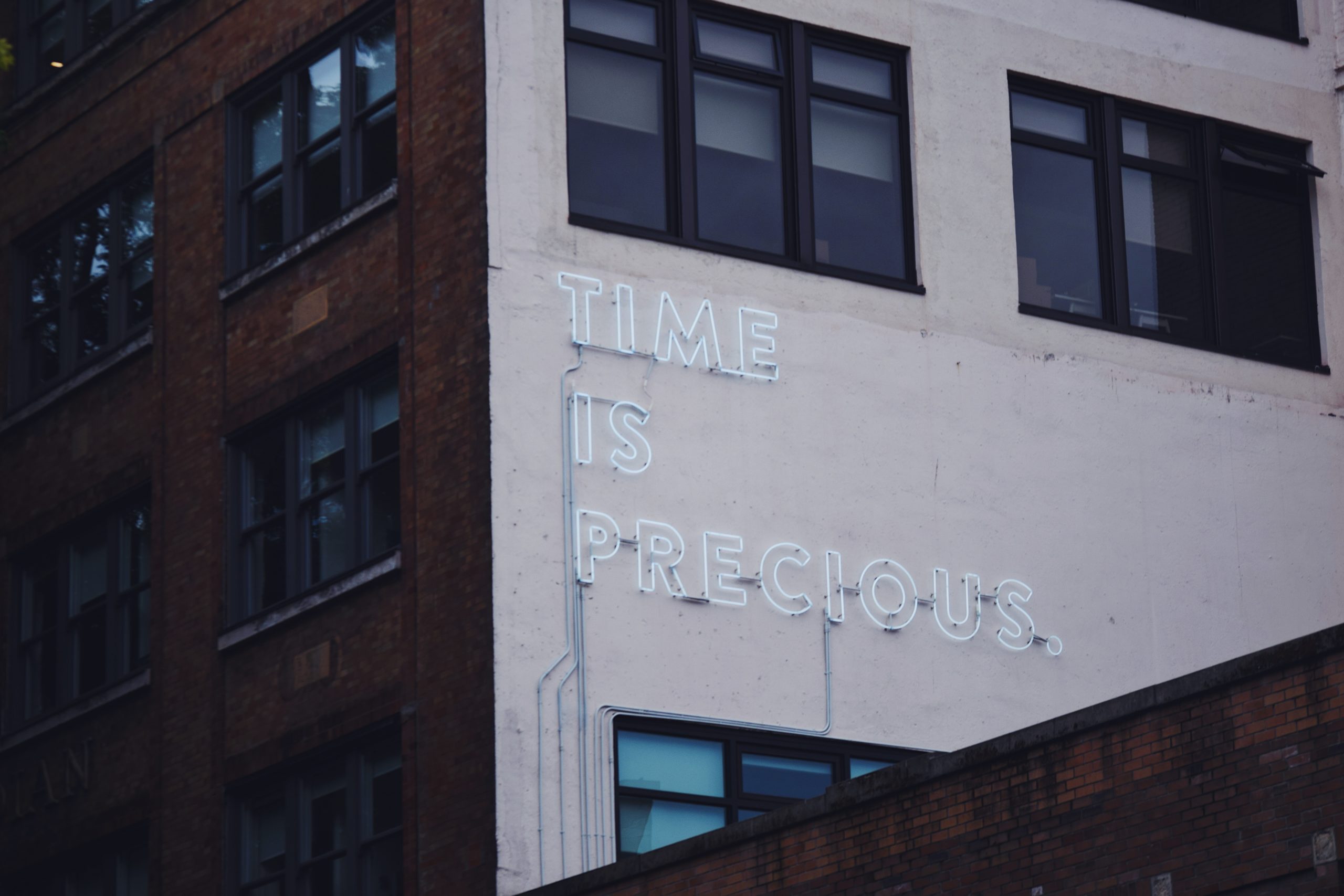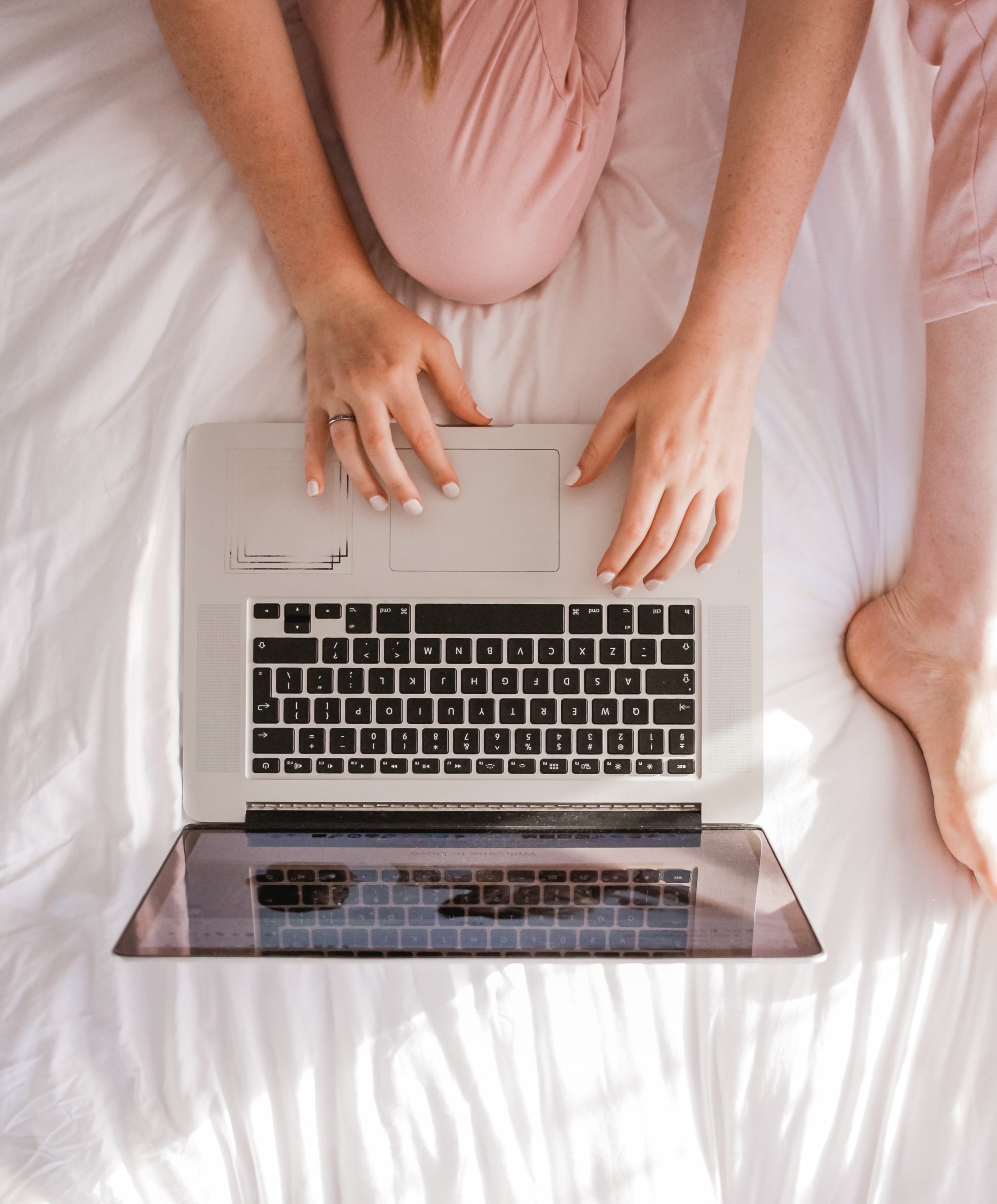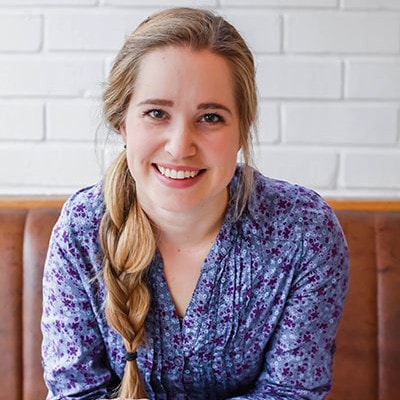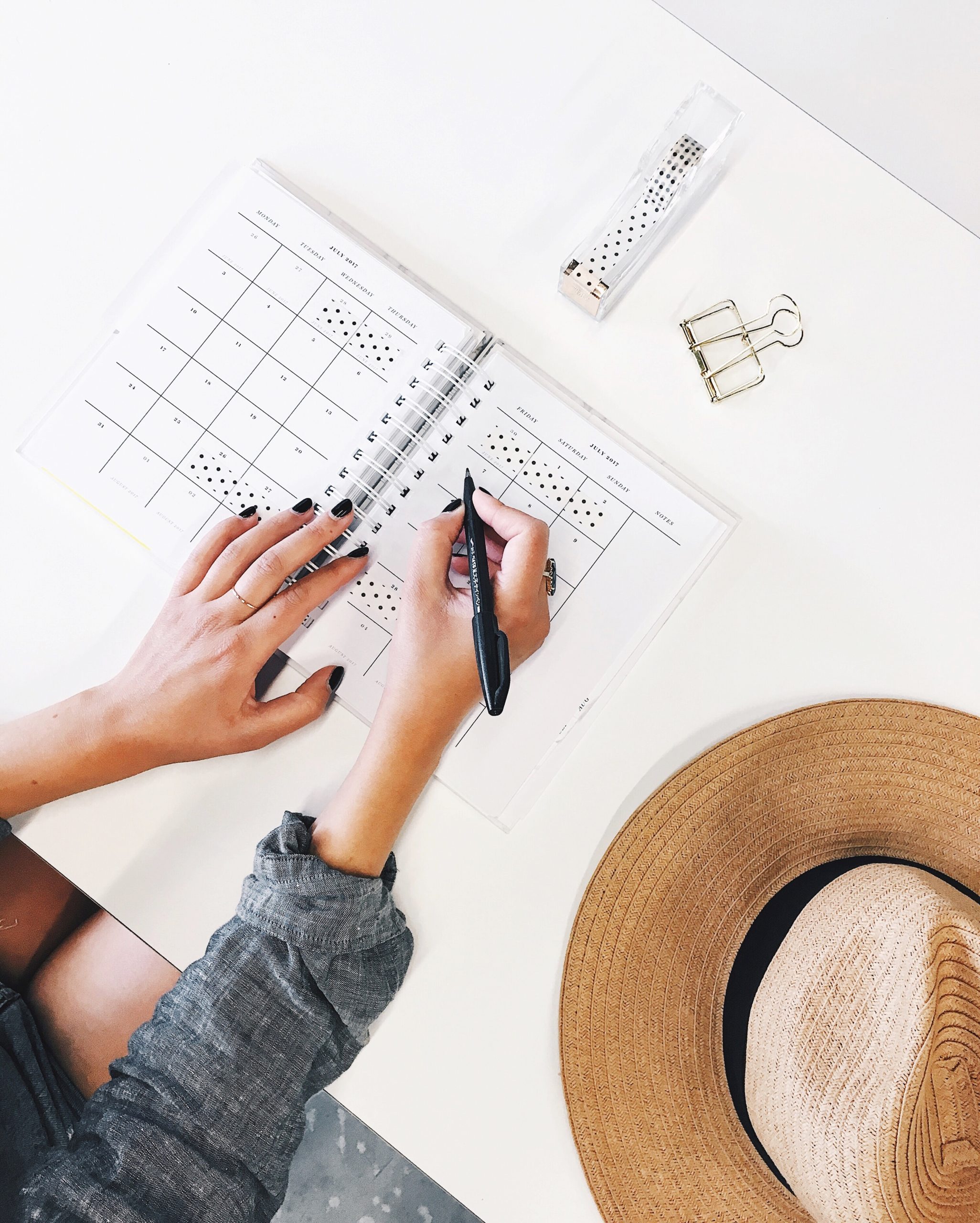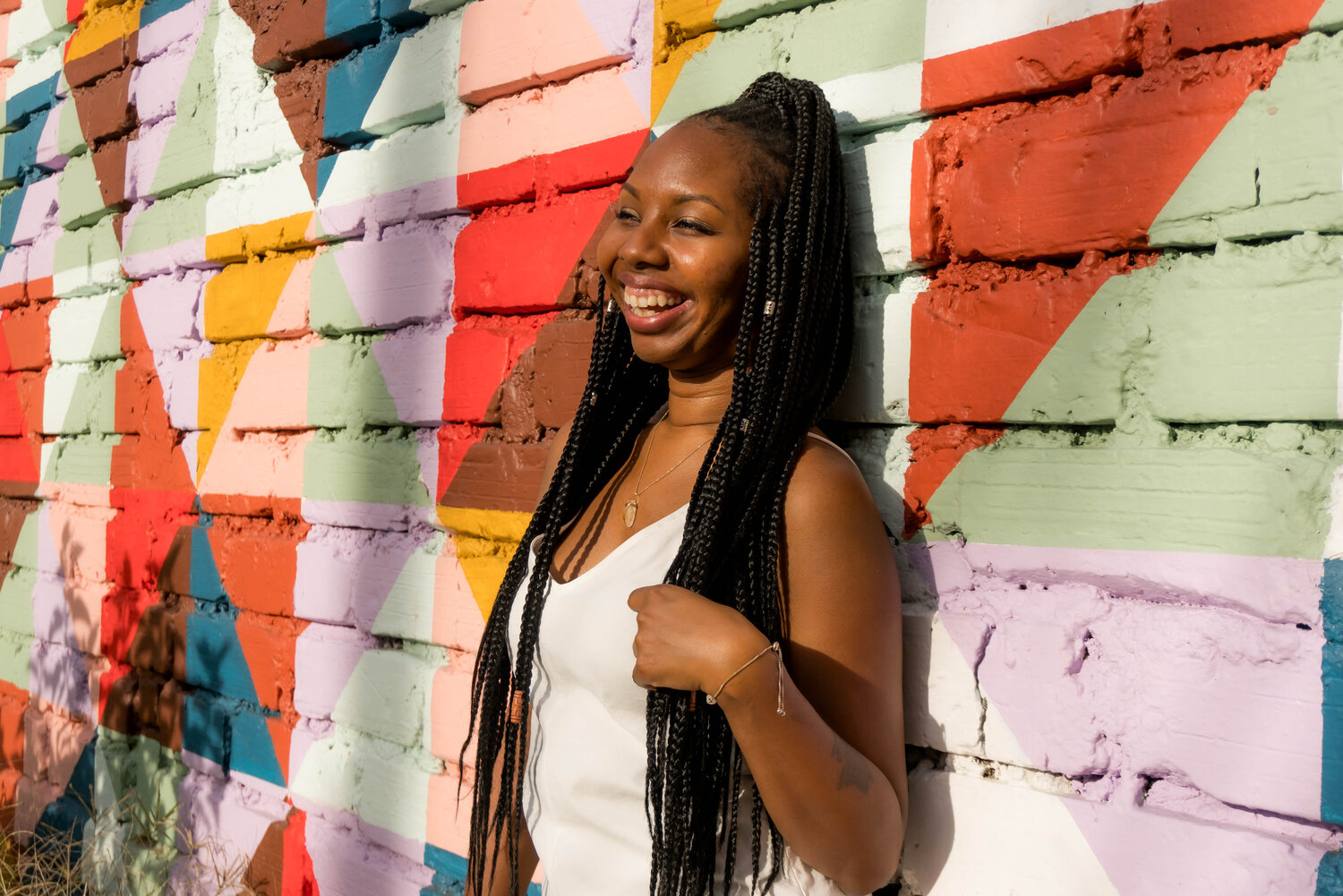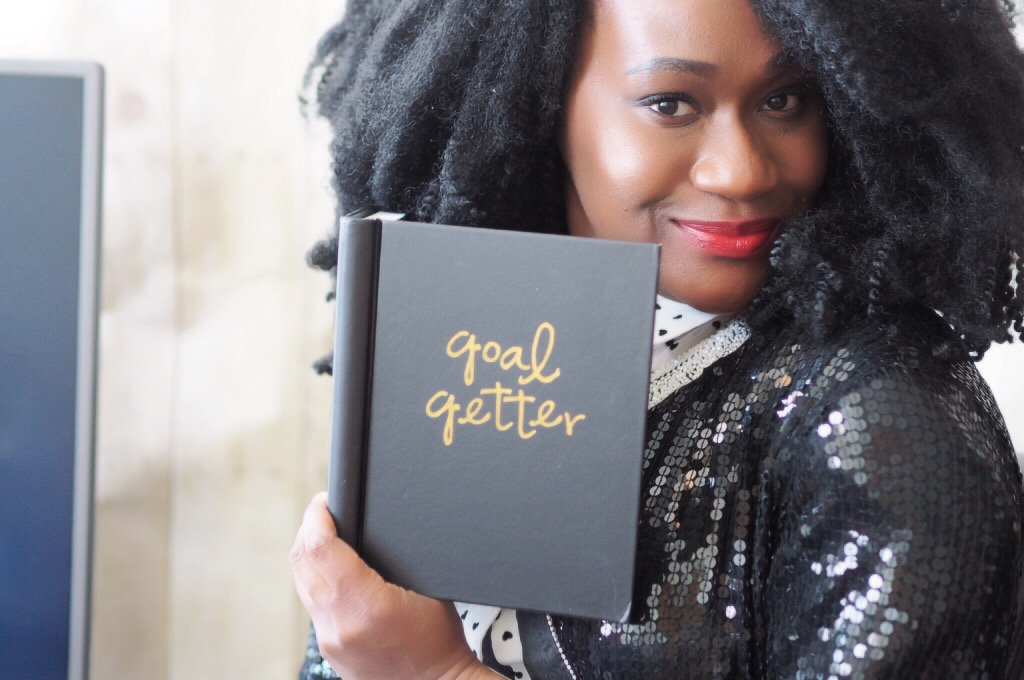What if I told you that doing this one activity for 10-20 minutes per day could result in less stress, more joy, better focus, amazing sex, and more mindfulness?
If we’re talking about meditation, then it’s the truth!
I’ve personally been meditating for the past couple of years and can testify to the amazing benefits it brings to my own life.
If I’m anxious or worried? A couple minutes of meditation is all it takes to ground me and make me feel secure.
If I’m unfocused or unmotivated? Meditation rejuvenates my spirit.
And when I just want to feel like a happier, better version of myself? Meditation brings me closer to who I am.
So, it’s no surprise why I had to have Emily Fletcher, founder of Ziva Meditation, on the podcast. And trust me, she’s a woman you definitely wanna get to know.
Emily spent 10 years of her life performing on Broadway and began using meditation as a way to heal from the immense stress that she was feeling as a performer. Inspired by the physical and mental changes taking place from her practice, she traveled abroad to India for over 10 years (!) to study meditation.
Now, Emily teaches her innovative methods to companies like Google and Viacom, NBA players, full-time Moms, as well as thousands of other people around the world at conferences, live events, and through her online courses.
Emily’s mission in life is to make meditation attractive, accessible and easy to adopt into modern life. She says that she wants to make meditation as normal as brushing your teeth — that leaving the house without meditating should be just as taboo as leaving the house with bad breath. I’m with it!
During this hilarious and super informative interview, she shares her special “Ziva Meditation Technique” that teaches you how to feel happier, calmer and less stressed out.
Plus, Emily also has a free guided meditation to help you get ready for any big event – sweet right?! You can download it over here.
I can’t wait to share all the goodness of this interview with you, so let’s dive in!
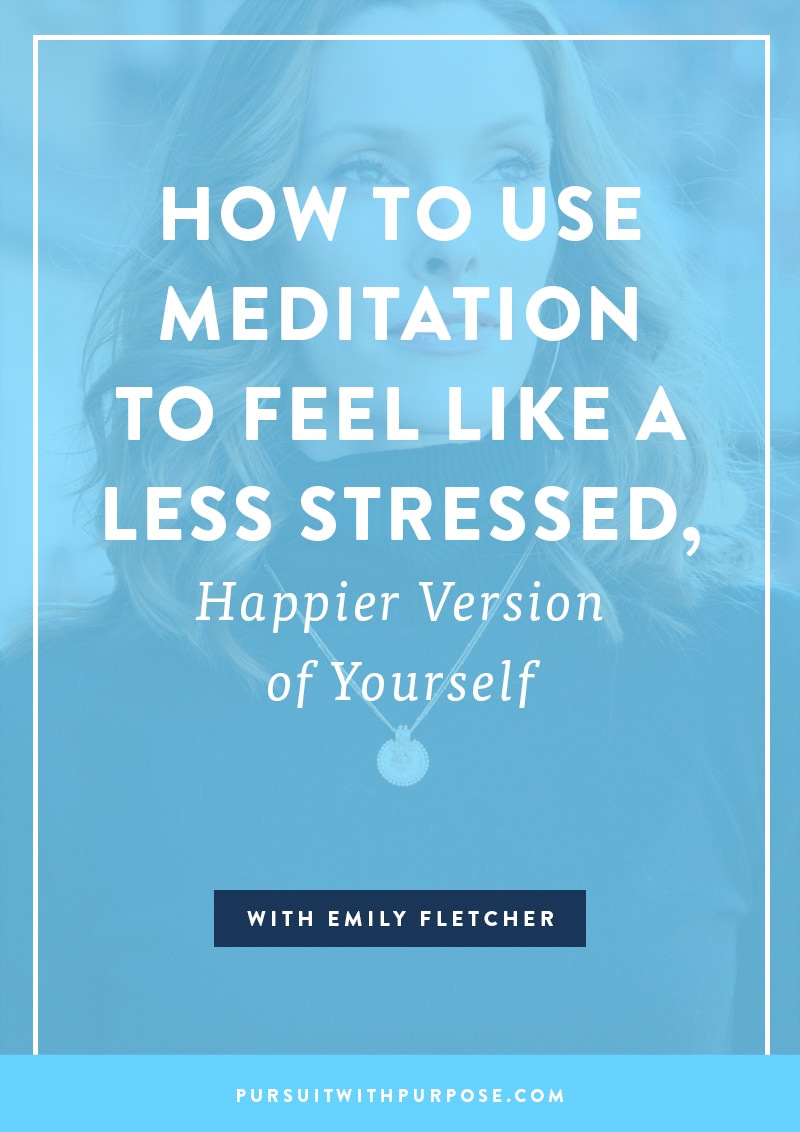
Check out the episode below:
In this episode, you’ll hear about things like…
- What to do if you’ve tried meditating before and failed (and the logical reason why you shouldn’t give up just yet).
- The pain and loss of identity Emily felt when she decided to discontinue her Broadway acting career, but why she didn’t see it as a failure (and what happened next).
- Why “mindfulness” and “meditation” are actually two different things (and how to practice them both).
- Why meditation needs to be reframed as a productivity and performance tool, and not a casual “bubble bath for your brain.”
- The science behind meditation that might surprise you, as well as the tangible benefits it can bring to your life.
Links from the interview:
- Emily’s Website, Ziva Meditation
- Emily’s Free Guided Meditation
- Emily on Facebook
- Emily on Instagram
- Emily on Twitter
- Emily on YouTube
Subscribe and Review…pretty please?
Want to be the first to know when new episodes are released? Click here to subscribe in iTunes!
Also, podcast reviews are pretty darn important to iTunes and the more reviews we receive, the more likely we’ll be able to get this podcast and message in front of more people (something about iTunes algorithms?). I’d be extremely grateful if you left a review right here letting me know your favorite part of this episode!
#PursuitWithPurpose
Loving the podcast? I encourage you to use the hashtag #PursuitWithPurpose to show our PWP tribe how you live your purpose everyday. Plus, you’ll get to sift through the hashtag to find other business owners who care about community and connectedness over competition and comparison. And I’ll be reposting some of my favorite images and stories, too. 🙂
Thank you for listening!
Transcript
Read the Interview Transcription HereDuring this hilarious and informative interview, Emily shares her special Ziva Meditation technique, what the immense benefits of meditation are, including the science to back it up, and how you can use meditation for just a few minutes a day to feel happier, look younger, and be calmer and less stressed out. Now I’ve personally been doing meditation for the past couple years and can testify to the amazing benefits it brings to my own life. I always feel grounded and at peace after even just a few minutes every day. So Emily also has a free gift for you today, which you can download at zivameditation.com/gift. Ziva is spelled Z.I.V.A. So zivameditation.com/gift. Can’t wait to share this interview with you, so let’s dive in.
Melyssa Griffin: Alright, so Emily, the more I learn about you, the more you become the most interesting human to me. I would love to hear more about your back story. I know you’re this incredible meditation teacher, but what were you doing before you got into meditation?
Emily Fletcher: I was actually on Broadway for 10 years before I started teaching. I relate to high performers because I think a lot of high performers have achieved a level of success in their life or they have achieved a certain dream. And then they realize like wait, I’m not floating on a cloud of sunshine and unicorns. I still have problems and I still have things to solve. That was very much my experience. I thought when I was a little girl that once I got on Broadway that my whole life was going to be sunshine and roses and martinis. Instead it was girls eating tuna fish out of a can, complaining about their bunions, and me rocking myself in fetal position, listening to Eckhart Tolle on repeat, which I’ll talk about in a minute which is the thing that drove me to meditation. My first Broadway show, I was 22 years old. What I was learning was that I was more interested in the happiness of pursuit than I was the pursuit of happiness, but I didn’t really have the insight to understand that quite yet. So I just thought oh well I’ll be happy in my next Broadway show or my next boyfriend or my next year on my bank account. I did that for about 10 years. And then finally, my last Broadway was a chorus line and I was understudying three of the lead roles which means that you show up to the theater with no idea what’s going to happen that night.
Melyssa Griffin: Wow, that sounds stressful.
Emily Fletcher: Exactly. Some people are good at this job, but I’m not one of those people. So basically, you’re just living your life in this constant state of anxiety. Sometimes you start the show as one role, halfway through they switch you to another one. Sometimes halfway through the show, you just get thrown on stage even though you’re just chilling in your dressing room 30 seconds earlier. You realize that when you’re not on, you’ve got this constant panic. And so, I started going gray at 26. I started having insomnia for about 18 months. I started getting sick and injured. It was very confusing to me why I was living my dream and miserable. Thankfully, this amazing woman was sitting next to me in the dressing room, understudying five of the leads, which is so hard. This woman was crushing it. I mean every song, every dance, every bite of food was a celebration. She was Australian. And so, I first just thought that it was just an Aussie thing.
Melyssa Griffin: That’s just their culture.
Emily Fletcher: Yeah because have you ever met an angry Australian?
Melyssa Griffin: That is so true.
Emily Fletcher: We’re racial profiling. I even went to Australia and I was looking for an unhappy person.
Melyssa Griffin: They must be here somewhere.
Emily Fletcher: Yeah. So first, I chalked it up to her being an Aussie, but then I was like no, this is extra. Finally, I was like what do you know that I don’t know, and she said I meditate. I was like oh God, one of those. I was rolling my eyes and thinking like she doesn’t get me, she doesn’t understand my stress, she doesn’t know what I’m going through. But I’m like wait, she knows exactly what I’m going through and she’s crushing it. Finally, I was so embarrassed about my performance and I was sick of getting sick and sick of being tired. So I went along with this intro to meditation talk. I liked what I heard. I signed up for this four day course. First day, first course, I was meditating. To be honest, I had no idea what that meant, but I was in a very different state of consciousness than I’d ever been in before, and I liked it. And then that night, I slept through the night for the first time in 18 months and I have every night since, and that was 10 years ago. Shockingly, I stopped getting sick. I stopped going gray. I stopped getting injured. I started enjoying my job again. Because it turns out, life is a lot easier when you’re not exhausted.
So finally, I was like I don’t understand why everyone doesn’t do this. I left Broadway. I went to India and I started what became a three year training process to teach. I opened up Ziva. So Ziva Meditation is the name of my company. I opened it up five years ago, but I’ve been full time for two and a half. It’s been the best thing I’ve ever done. People ask me if I miss performing and the answer is decidedly no. I feel like now I just get to use my lifetime of performance training, but more directly to help people. Selfishly, I get to wake up to emails from people every day saying my IBS is gone, my insomnia is gone, I got off my blood pressure medicine, I got pregnant even though my doctor said I couldn’t, I wrote that book, I broke up with that ding dong head. Meditation is allowing people to really step into their full performance capabilities and it’s so fun.
Melyssa Griffin: Wow, that is amazing. The first thing that you said, I loved too, where you thought that when you became like a Broadway performer, then you’d be happier. When you got to this point, then everything would be good. That was a big reason I started this podcast, is because I had that same feeling about my business, like when we get to this level, then I’ll be happy. So many people that I talk to have that thing, whatever it is…
Emily Fletcher: I call it the “I’ll be happy when” syndrome.
Melyssa Griffin: Yes, I like that. The IBH syndrome?
Emily Fletcher: I like it. Diagnose it.
Melyssa Griffin: Diagnose it. We are medical professionals here. Yeah, everyone has that thing. I love what you’re saying about how you might have that thing, but meditation is almost the cure to kind of pursuing that thing but still being happy in the moment, rather than putting every weight in an emphasis into this thing that might not even happen, and bring you the happiness you’re seeking. So that’s really interesting.
Emily Fletcher: Yeah. The way I like to say that is that mediation allows you to transition from being need, looking for fulfillment, and it instead turns you into fulfillment looking for a need.
Melyssa Griffin: I like that. I like that a lot. So the transition from being a Broadway performer to just packing up, moving to India for three years and…
Emily Fletcher: Just to be clear, I was not in India for the full three years. I’m not that hardcore, but that’s where I started.
Melyssa Griffin: Yeah got it, okay. But even still, like you’re on Broadway, this was your dream. You were doing it for 10 years and then you just decided to leave and go to India, and do something completely different. What was that like and what was your thought process at the time?
Emily Fletcher: To be honest, when I went to India the first time, I just wanted to go to deepen my own practice. I was just going because I sort of prided myself on being a seeker. I was like I’ve read all the books and I’ve done all the things, and I see other people. It was a big part of my identity being a seeker. About five or six months into meditating, I was like I’m not a seeker anymore. I found it and it’s right inside of me. And so, when I found – I found a tool that gave me access to that bliss and fulfillment, and the only place that it resides which is inside of me. I just wanted to learn more about the technique. I wanted to learn more about the lineage. And so, I went to start as a personal enrichment and fulfillment. And then when I was in India, that’s when I decided – well I didn’t even decide, it was downloaded. I was like oh, so this is what I’ll be doing you know. I was like this is clearly how nature wants to use me. There’s a funny story, maybe that’s for the second podcast.
Melyssa Griffin: Not going to go there.
Emily Fletcher: It was very clear to me that when I got there, I was like oh I’ll be teaching this. To be honest, I thought it would be happening later, like when I’m not acting anymore, when I’m not dancing anymore, when I can’t kick my leg, like this is what I’ll do. And so, when I came back from India the first time, I moved to LA, thinking that I wanted to pursue TV and film. And then my – because I had been on Broadway for 10 years and it was like a, “okay, I did it”. But then my second day in LA, I ran into a really amazing teacher who I had met in India. We started working together and then I actually started training with him. So a lot of my training, hilariously – this is so funny to me. I was working at this vodka tasting freezer in Beverly Hills.
Melyssa Griffin: …doing. You’re becoming a meditation teacher.
Emily Fletcher: Exactly. I was slinging vodka shots in a 28° vodka tasting freezer into like two in the morning. And then I would get up at dawn and meditate for six or seven hours. Then when I wasn’t in the vod box which is what it was called, I’d be at the hostess station transcribing books and song script by hand. I was like what is my life right now. It was like my whole life is vodka to veda, vodka to veda. And then I was like, “wait I think that’s a book idea.” So I wrote this whole book called “From Vodka to Veda” which is like these lascivious, hedonistic tales of being a Broadway show girl with secret Vedic lessons moving in. And then turns out that’s not the book I’m publishing. I just got my first book deal with Harper Collins, but the book is going to called “The M Word”, and then we’re going to do “From Vodka to Veda” second. It’s sort of half out autobiographical.
Melyssa Griffin: Cool. That’s amazing. Congrats…I don’t either and I like where it went anyway.
Emily Fletcher: Okay great. I will share just one thing, is that when I was doing my teacher training, I was meditating for like 18 to 20 hours a week, like actual eyes closed time. In that process, you’re basically eradicating every stress you’ve ever accumulated from your nervous system. And so, all this stuff comes up and out. It can be very intense. It is very intense. The saddest thing, like the story that kept coming up again and again, was mourning the loss of my identity as an actress, even though I hadn’t intellectually decided that I was going to quit. When I started this, I was like oh yeah, I’ll act and teach. When acting is slow, I’ll teach, and then – and vice versa. But then as soon as I graduated, it became very clear, like Ziva grew so fast and exponentially. It was like my agents would be like hey, can we get some headshots and resumes. It would take me three months to drop them off. I was clearly boding with my time and attention. I’m sharing that just because I feel like a lot of people, when they’ve had their heart set on something since they were a child, they feel like it’s giving up or it’s quitting or it’s an admission of failure somehow if they transition to something else. Even though that was painful, like mourning the loss of this thing that I felt like was such a part of me, thankfully, I was very much moving towards the positive. I was not moving away from the negative. I actually found something that I loved more, which I was able to move towards that versus I think if I had moved away from acting, that would be very hard for me to let it go. I would have still been mourning it. Does that make sense?
Melyssa Griffin: Absolutely. I love the way you said that too, you’re moving towards the positive, not away from the negative. I think that resonates with so many people listening, who might be in something right now that was the dream, and then realizing, this is actually not my dream anymore, but how do I reconcile that with the fact that I’ve worked so hard to get to this place. So I love that you said that. Now I’m curious, when you’re on Broadway, when you started meditation and got all these benefits from it, before really diving into all the teaching and learning, what did your practice look like that changed so much for you at that time?
Emily Fletcher: So it was interesting, I actually learned meditation in – I had like four days off in between chorus line Broadway and then chorus line tour. And so, chorus line Broadway was the worst job I’ve ever had in my whole life. And then I learned to meditate, it was two hours a day for four days. And then I went on the same show, but now I had a meditation practice and that was like the best job I’d ever had until I started Ziva. The thing, the variable there was meditation. And so, the practice itself, what I was practicing originally was like 20 minutes twice a day. In this practice, you’re accessing a verifiable fourth* state of consciousness. So different than waking, sleeping or dreaming. In this state of consciousness, the right and left hemispheres of the brain are functioning in unison and you’re giving your body rest that’s five times deeper than sleep, which is not an insignificant point, because when you give your body the rest that it needs, it knows how to heal itself. One of the things that it heals itself from is stress. And so, I would basically wake up in the morning, go to the bathroom, have some water, and then do my meditation first thing. And then in that like mid-afternoon slump, where you want to have the coffee or the nap or the chocolate, I would do my second meditation minute there and then I would have this beautiful second or third wind to do my show at night.
And so, that’s what I started with and then that practice has now adapted into the Ziva technique. The Ziva technique is this beautiful trifecta of mindfulness, meditation and manifesting. The way I like to think about that is that mindfulness is the appetizer, meditation is the main course, and manifesting is the dessert. A lot of people are using mindfulness and meditation as synonyms, but they’re not actually the same thing. I think that as it’s getting more and more popular, it’s really important that we educate people on the differences, because if you lump them all under one term, then it’s confusing for people starting out. Golf is not football. Eating a hamburger is different than eating a smoothie. Even though they’re all food or sports, if you were to try and play football while you’re on the golf course, it’s going to not work out that well. Importantly, if you’re trying to focus and control your mind while you’re meditating, it’s not going to feel very nice. If you’re trying to rest and get rejuvenating benefits while you’re practicing mindfulness, it’s not going work out so well. Quick Cliff Notes* on the difference, is that mindfulness is basically the art of bringing your awareness into the present moment. Beautiful. Simple. Important. The art of bringing your awareness into the present moment, but it’s very much a waking state practice.
Melyssa Griffin: So it’s very much thinking about the now, what’s happening right now, not thinking about the future or the past.
Emily Fletcher: That’s right. That’s why I think people are saying like oh I’m doing a walking meditation or I’m doing a dishwashing meditation or I’m doing a dancing meditation – whatever. I feel like any time someone is not looking at their iPhone, they call it a meditation these days. What they’re saying is like I’m consciously washing my dishes, I’m consciously walking, I’m bringing my awareness into the right now, which is beautiful and a great practice, but we can do it right now. I could say alright, bring your awareness to your feet, and everyone could do that. Bring your awareness to your breath coming in and out of your nostrils, and everyone could do that. Bring yourself to the right here, right now, great. That’s what most of the apps are. That’s what most of the YouTube videos are. It’s someone guiding you, so you’re directing your focus in a certain place. Awesome. Lovely. But mindfulness is kind of – it’s dealing with your stress in the right now. Similar like if I had a headache and I take an aspirin, it gets rid of my pain in the right now. What meditation is doing, meditation as I would define it, where you’re accessing that deep rest and the right and the left hemispheres of your brain are functioning in unison. Meditation is dealing with your stress from the past. So you’re giving your body this deep breath, so it’s healing yourself from all the stress that we have stored in our cellular memory. The manifesting piece is helping you with your dreams for the future.
Melyssa Griffin: How does that work? Can you go into a little bit more about manifesting? I feel like I try to practice manifesting, and I’ve heard it a lot more lately just online and in different circles. So I’m curious how you would define that.
Emily Fletcher: Yeah. So the word manifesting has gotten a bit of a bad rap, certainly with high achievers and high performers, which is my bread and butter. That’s who we work with at Ziva. I feel like people hear the word manifest and like “oh God, someone is going to get high and watch the secret and live out their dreams”. To me, manifesting just means making shit happen in your life. It’s like consciously creating a life you love versus being a victim to your circumstances. It’s basically just the art of getting clear on what it is that you want. Now there are certain ways to expedite that and help facilitate that which what I teach in the course. I will say that the combination of meditation and manifesting is super powerful, because you can think about your dreams all day long, but if your body is riddled with stress, then your cells are vibrating on the frequency of stress. If you don’t meditate, you’re not getting rid of that stress. It’s up leveling your actual vibration which allows it – it makes it easier for your dreams to show up, which sounds a little hippy dippy but it’s a twofold process; one getting clear about what you want, and then two, basically imagining it as if it’s happening right now. Where most of us mess up is that we – like oh God, I want a boyfriend so bad, I just really want a boyfriend, I can’t believe I don’t have a boyfriend, when am I going to get a boyfriend, when is my boyfriend going to show up. And then what they are inadvertently doing is watering the weeds. They’re putting their attention on the absence of the thing versus the thing. And so, the trick really – and this is what we teach people at Ziva, is that we give people tools to imagine it as if it’s happening right now, so that you’re putting yourself in that feeling space as if it is your current reality.
It’s funny because this weekend I got invited to speak at this very amazing conference. It was all the OGs* in the self-help space. I mean it was like Jack Canfield and John Gray of Chicken Soup for The Soul, and the people that were all a secret, Women Are from Mars, Men are from Venus – like these Titans in the self-help industry. They invited me to speak which I was so humbled and honored. I was like what am I going to do? Lecture these people on meditation? They literally wrote the book. I was like what am I going to say? What am I going to share? And so, I just shared my story. I was like I’m only sharing my story so that we have the opportunity to have a conversation, we can dive deeper.
Melyssa Griffin: Well that’s amazing. What an accomplishment. I love the way you describe manifesting, because I think some people do think of it as like vibrations, energy. This is kind of too hippy for me. I’m all about it. I love that kind of stuff. It is really what you said. It’s like if you’re vibrating, whatever you want to call it, if you’re on that cycle of just thinking like when am I going to get this, why don’t I have this yet, what’s going wrong in my life, then how can good things ever show up. You have to be in that mind space that you want to create those good things. So for us, it’s about vibration and energy, but translated for someone else, it might just be like if you’re thinking the wrong things, you’re not going to get the right things.
Emily Fletcher: Yeah beautiful.
Melyssa Griffin: Yeah, so what are some of the benefits of meditation? I know there are many. What are some of the tough ones?
Emily Fletcher: This is such a hard question for me, like how long do you have? I’m going to edit myself. I’ll tell you the main reasons that people come to me and then the main feedback we get after the course. So I feel like people come to me when they’re ready to really step into their full potential and they’re ready to really change their lives. There’s millions of free meditation apps that nobody uses, like I download this app and I used it three times, like yeah I meditate. Which is great, I’m glad that they exist. It’s a great gateway drug. People come to me when they’re ready, like okay I want to do this. A lot of people are coming because they are dealing with stress in some sort, anxiety, depression, insomnia, migraines. Those are sort of like the negative parts of it, but then a lot of people come because they just are like my boss is doing this and she’s crushing it or my boyfriend’s doing this and he’s not a dick anymore or my neighbor is doing this and she got pregnant at 42. What’s happening more and more, which I really love, which I feel Ziva has been a part of, is that people are no longer waiting until their life is in the shitter to start meditating. They’re actually starting to do it proactively, and are starting to see like, oh wait, maybe my brain is responsible for making every decision I make, imprinting every cell in my body.
People are like, I can’t believe you waste your time in a meditation class or pay money for meditation class. I’m like this is your brain, literally what else are you going to spend your time and money on? It’s doing everything for you. If we’re stressed all the time, then we’re simply not operating on all cylinders. Stress makes you stupid, period, the end. There’s a reason why you can’t find your keys when they’re in your hand when you’re rushing to get out of your house. And so, if meditation is the most powerful stress relieving tool that we have, which it is, then it stands to reason that the less stress you have in your body, the better able you are to perform at the top of your game. That to me is why you meditate. So we’re all about – I am one to say you meditate to get good at life, not to get good at meditation. It’s very hard to be good at life if you’re struggling with severe anxiety, depression, insomnia, getting sick all the time. Those are all really byproducts of stress. In the West, we love to put acronyms on things, like but I have ADD, and ADHD, and PTSD. In India, we just call all that stress. That’s not to be diminishing of the condition, because obviously, I care a lot about – I dedicated my entire life to giving people stress relieving tools. I do think that in the West, we have a tendency to put a little bit too much emphasis on treating or masking the symptoms. And so, we fall in love with our symptoms. We can identify with the symptoms versus looking at the deeper, underlying imbalance, which 80-90% of the time which has been quantified by Harvard Medical School – 80-90% of all doctor’s visits are stress related. 80-90, and so, if you get rid of the stress, the underlying stress imbalance and all these symptoms start to change, like erectile dysfunction, infertility, IBS, balding, belly fat, skin acidity – like all that stuff starts to change because those are all symptoms of you having too much acid in your body, which is a byproduct of adrenaline and cortisol which is what gets released in your brain when you launch into a fight or flight stress reaction.
Melyssa Griffin: Interesting. I mean I know that there is science behind it, but I’ve never actually dived into that kind of science before. That’s really interesting to hear. Is there a science that backs up meditation; statistics or research or anything like that?
Emily Fletcher: Yeah, so far there’s about 1400 peer reviewed scientific studies and counting. The graph is just going up. It’s like a 45° angle of the amount of research that’s happening. This is cool. So Ziva is actually partnering with some neuroscientists. It’s not totally done yet so I don’t want to out it, but neuroscience is a very reputable university. They’re doing some really amazing stuff with VR. So they’re going cage diving with sharks and doing 360 virtual reality photography, which is really groundbreaking in the field of neuroscience because virtual reality is allowing us to put humans in different brain states which sometimes we weren’t able to do. So you can like change the brain of a mouse or a monkey. Yes, there’s arguments about how ethical that is. You certainly can’t do that to humans. We’ve been making a lot of assumptions about well if we do this to a monkey brain or if we do this to a mouse brain, they’re making a lot of assumptions. But now with VR, we can start to test these theories on humans. And so, the field of neuroscience is speeding up, not only because of VR, but also because of the imaging technology is getting much more advanced. And so, now we can see not only that meditation is good for you because we really don’t need any more science to prove that it’s good for you, but now we can start to see how different styles of meditation are impacting the brain differently. With this university that we’re partnering with, they’re putting people into this fight or flight stress state by either having them virtually cage dive with sharks or having spiders crawling on them so they go into fight or flight and they’re testing five different meditation modalities to see how effective they are at getting them out of fight or flight and into stay and play. Ziva is going to be one of the techniques that they’re testing which we’re super stoked about.
Melyssa Griffin: That’s incredible.
Emily Fletcher: Yeah, thanks.
Melyssa Griffin: That’s so cool. Wow, I love that they’re using virtual reality in that way. It almost sounds like a Black Mirror episode. Have you ever seen Black Mirror?
Emily Fletcher: I saw one episode. It was the social media one which is my weakness. I was like thank God I saw this.
Melyssa Griffin: That was a good one. Yeah, Black Mirror is such an interesting show, but it really seems like it could be applied to one of those episodes. So I have a lot of friends who I recommend meditation to and they’ll say some form of well I tried meditation once and couldn’t get my mind to shut up, so I don’t think I’m cut out for it. What would you say to someone like that?
Emily Fletcher: Okay, so if anyone – if you’re listening to this and you’ve ever tried meditation and you felt a little frustrated because you couldn’t stop your mind from thinking or you just like you were failing at it, I’ve really, really, really good news, so listen up. The mind thinks involuntarily just like the heart beats involuntarily. I’m going to say it one more time for dramatic effect. The mind thinks involuntarily just like the heart beats involuntarily. So trying to give your brain a command to shut up is as impactful as trying to give your heart a command to stop beating. It does not work, and yet this is the criteria by which everyone is judging themselves by meditation. And so, it looks like this: they sit down, they close their eyes, they go okay brain, stop thinking, sure would like a snack. I wonder what kind of snack I should get. Maybe I should get some avocado. Wait, I’m thinking about avocados. I suck at meditation and I quit. That’s the end of most people’s meditation career. It makes me really sad because then this person has potentially robbed themselves of a lifetime of bliss and fulfillment because they’re judging themselves based on misinformation. I think there’s one dude out there going around telling everyone in order to meditate, you have to clear your mind. Anybody finds him, please send him to me so that I can teach him how to meditate.
So I’m not saying that you can’t access different states of consciousness, you can or otherwise I’d be out of a job. What I am suggesting is that you cannot command your brain to be silent. And so, what everyone is trying to do – it will be like trying to skip directly to like brain being silent, which PS, the only time the brain flat lines is when we’re dead. So it’s decidedly not the point of meditation, but it’s like trying to skip directly to orgasm without ever having any actual intercourse or foreplay or stimulation of any sort. That’s not the way it works. If you try to go directly there, you’re going to feel like you’re failing, you’re going to put too much pressure on yourself, and you’re not going to enjoy the whole thing. If you start to understand that it’s very simple, innocent, natural thing, and you get the right tools or the right partner, and then it’s like oh okay, I get it. And then everything happens innocently and spontaneously. The thing is, a lot of people – because meditation is simple, people think that they should a) already know how to do it, like oh it’s simple – I’m just going to sit in a chair and just do it. Swimming is simple too, but if you throw somebody in a pool, they may or may not be able to swim. They may or may not drown. Michael Phelps, he has a swim coach. So it’s like what degree do you want to be doing this thing and how much time do you want to spend floundering around in the pool. To me, it’s like meditation is like any other skill. If you get a tool that’s right for you and you have some training, and you actually practice it, it can be ridiculously enjoyable and beneficial. If you just assume that you already know how to do it, it’s probably going to feel frustrating and you’re probably – like if I was going to do a 21 day Japanese challenge for 20 minutes starting today, I’m going to try and speak Japanese, I’m going to quit that pretty fast because I don’t know how to speak Japanese. If I took a Japanese class for a couple of weeks and then I’ll be like oh yeah, I got it. Yeah, I’m going to practice speaking Japanese a few minutes every day.
So that’s one thing, people think they should already know how to do it because it’s simple. They also sometimes assume that because it’s simple, it’s easy. There are things that are easy about meditation, but depending on what style you’re practicing – like what I teach at Ziva, I call it the Tesla of meditations because it’s fast, it’s powerful, and I think it makes you sexier. When I say powerful, I mean that what we teach at Ziva, because it’s getting rid of those stresses from your past, that stuff – like all that stress, it’s stored in your cellular memory as it comes up and out. It can have a bit of the same flavor on the way out as it did on the way in. So if you have some sad flavored stress inside of you, you might have some sadness coming up and out. If you have some rage inside of you, you might have some rage flavored stress coming up and out. No one’s talking about that. No one’s talking about the sort of detoxification that happens when you start to practice. Everyone assumes you should just be like floating on a cloud of unicorns. And then if they start a meditation practice and they feel some sadness or some anxiety or some anger, they’re like oh crap, I suck at this, I’m failing versus understanding that it’s an actual process. It’s a cleansing process. That’s where I think a teacher is so important, one that’s been through it themselves and one that has successfully ushered people through that process previously.
Melyssa Griffin: Does that happen every time; the sad flavor, the rage flavor coming out, or do you kind of get to a point where it’s like this feels really good now?
Emily Fletcher: Mostly it happens at the beginning for most people. It’s like a floodgate. For most of us, we’ve been sucking up stress, sucking up stress, sucking up stress. In the first few days and weeks, we flip the switch to outflow. And so, the stuff comes out pretty hot and heavy in the beginning, and then it slows down to a trickle. And then all the while you’re up levelling, up levelling and your life is getting more amazing and you’re performing better. The meditation itself is enjoyable because you’re flooding your brain with dopamine, serotonin which are bliss chemicals, which feel nice. It’s not just like a drug. It’s not just like an escape. It’s not like oh let me do this thing so I feel good right now. No, it’s like you do it and then that dopamine and serotonin stays in your nervous system for a while afterwards. The amount of time that those bliss chemicals are marinating in your system that gets longer and longer the more you meditate. So it’s like the benefits are actually accumulative. So you start riding that meditation high for longer and longer after you’re sitting.
Melyssa Griffin: Got it. That makes sense. So tell me if this sounds accurate. I’ve heard meditation described this way and it helped me personally get through those feelings of I suck at this, I’m not doing it right because I’m thinking all the time, is that it’s not about shutting off your thoughts like you said, but it’s about seeing your thoughts and just letting them pass. Seeing the emotion and letting it just kind of cycle by rather than feeling it.
Emily Fletcher: So what you just described is like a really beautiful simple description of Buddhism or mindfulness. It’s very much like being identified with the witness or of the observer. There’s a lot of power in coming to the realization that you are not your thoughts. And so, what that is trying to illustrate is like if you are thinking I want to punch that guy in the face, it doesn’t mean that you are a violent person. It means you’re having a violent thought. And so, you start to become more identified with the piece of you that is watching those thoughts, the piece of you that’s connected to everyone and everything versus like I am angry. There is a nice parable that I think describes this, where it’s like before meditation, I used to say I am angry. And then a few months after meditating, I would say I am feeling angry. A few years after meditating, you say I’m having some heat sensations in my chest right now. So it’s just a feeling or a thought that’s passing. To me, that ability to pull the lens back, that perspective, that increasing consciousness, that to me is a byproduct of meditation.
Now what you’re describing is like in the actual practice when your eyes are closed, you’re letting those thoughts go by. That’s a bit more of a mindfulness practice. This is going to be a little nuanced and perhaps a little confusing if you don’t have any visceral experience of the difference between the two. The way I like to describe it is that the leash is a lot longer in meditation than it is in mindfulness. So in mindfulness, it is like oh, if you’re having a thought, let it drift on by and then come back to the breath, come back to the technique, come back to the visualization, come back to whatever it is that you’re doing versus in Ziva, the leash is a lot longer. You can let yourself fall into those sleepy feelings, you can take mental field trips for longer periods of time. What we then do is that we trust that, just like the thoughts are bubbling up innocently and spontaneously, the thought that you’re off the mantra will bubble up innocently and spontaneously. And so, it’s giving you – I like to call it the lazy man’s meditation because there’s no real discipline, rigidity. It’s not like you’re like come back, come back, come back. I’m not sure if I’m doing a great job of describing that.
Melyssa Griffin: Yeah that makes sense. I think what I have defined meditation as is more of mindfulness. Meditation is more of sitting and…
Emily Fletcher: With a nap sitting up.
Melyssa Griffin: Yeah that makes sense. That’s interesting.
Emily Fletcher: I think you’re not alone. I think most people when they say or think of the word meditation, what they’re actually saying is some form of mindfulness. So this is probably on me to create a new word. Just let meditation be mindfulness and create a new word for what meditation is, which is basically lazy times sleepy, nap sitting up.
Melyssa Griffin: That’s good. Maybe just turn into an acronym and call it a day.
Emily Fletcher: Yeah, I was taking to this marketing guy the other day and he said – because he was trying to help me find like my elevator – not even an elevator pitch at a cocktail party. What do you do? He was like oh I got it, you should tell people “I teach people to sleep standing up”.
Melyssa Griffin: Great conversation starter, like oh yeah, okay that sounds useful. For starters, everyone should go out and get your course on Ziva meditation, Ziva technique. I absolutely am. How can somebody, in addition to that or before they get your course, get started with your technique? What are some actionable steps they can take or things they can do?
Emily Fletcher: So really the number one, is knowing that thoughts are not the enemy of meditation, effort is. If that’s the only thing you take away from this conversation, just that nugget will make any path that you pursue so much easier, because you’re not going to be judging yourself as a failure and you’re going to allow the thoughts to happen and come. So that’s step one. I would say step two would be to find a teacher or find a technique that you resonate with and someone that you respect, someone that has integrity, someone that has helped people, and maybe even someone whose life you like. I don’t think you want to learn meditation from a stressed out, angry person. I’m not going to a financial advisor who is bankrupt. And so, I think that – make sure that your gut feels good with the person because it can be a pretty…
Melyssa Griffin: Personal?
Emily Fletcher: Personal. I was going to use the word intimate, but then I was like “uh-oh” another conversation. Show me one guru who’s not boning his student and then… You want to vibe with the person. You want to trust and respect the person and the technique. I would say that what you want to judge yourself by is, is your life getting better, is your sleep better, is your immune system stronger, are you more creative, are you more productive, are these things starting to change once you start practicing that technique. And then the not so secret, secret to meditating, is that once you have a technique and once you have training, is schedule it. Actually put it in your calendar, put it on your phone like you would a dentist appointment or a doctor’s appointment and protect it. Because again, this is your brain that you’re talking about. A lot of people treat meditation – like I was at a hotel the other day and this woman at the front desk was checking* me in. I was teaching a course. She was like “Oh God, I would love to join you. I’d love to pamper my brain.” I hated that word pamper, because it was like this is not a pedicure. This is not a massage. This thing is not a bubble bath. This is like the single most important piece of mental hygiene that you could be doing every day. So we have to stop putting it in the luxury category. My mission at Ziva is to make leaving your house without meditating as rude as leaving your house without brushing your teeth. It’s like that’s gross, it’s rude. You need to handle that.
Melyssa Griffin: I like that. I mean I don’t know if this is part of what you teach, but is there a certain amount of time that you recommend people start meditating every day?
Emily Fletcher: So I would say – this is a bit of a tricky question for me because I would say if you don’t have a technique and you don’t have any training, I would say zero minutes a day, because if you sit down and you don’t have a technique or training, it’s probably going to feel frustrating. And then you’re going to feel like you’re failing and then you’re going to quit. You’re much less likely to ever meditate again. The thing is there’s tons of free apps. If you want to just dip your toe in the water, like great, get a free app, get some guided visualization. Awesome. When you’re ready to take the training wheels off and really become self-sufficient, that’s where Ziva comes into play. It’s not hard. I’m making it sound like it’s super intense, but it’s not. What I do is actually walk people through step by step, day by day. It’s a matriculation. I would say maybe five minutes. If you’re going to start on your own, maybe five minutes would be good, and then build up from there. Once people have training – our online course, you graduate – the practice is 15 minutes twice a day. So just wake up, you do it 15 minutes before coffee, breakfast or computer, and then 15 minutes in that mid-afternoon slumps. You have that hit of energy and productivity. For our Ziva live, for our in person training, the practice is 20 minutes twice a day. Inside of that 20 minutes, you’re doing a bit of a mindfulness, the full meditation and a little bit of manifesting at the end.
Melyssa Griffin: Cool. I like that. I like that it’s short too, 15 minutes, 15 minutes. I feel like if you don’t have a pocket of 15 minutes in your day, then you don’t have a life.
Emily Fletcher: That’s right. I think that’s a Tony Robbins quote. He’s like if you don’t have 10 minutes, you don’t have a life. People are like I’m so, so busy. The reality is people think that they’re so busy because their brains aren’t functioning at the level that they could be, so their to-do list is taking them longer than it could. What a lot of people report is like yeah I started meditating on my to-do list. It used to take me five hours, now it takes me three because I’ve got more flow, I’ve got more serendipity. I feel like I’m in the right place at the right time. The other thing that happens when you meditate is that your sleep becomes more efficient. So most people sleep signature is like light, medium, deep, light, medium, deep, wake up, and they’re up and down throughout the night. They wake up very exhausted. Meditating, because you’re using the twice a day to get rid of stress, your body can actually use sleep as a time for sleep. So your sleep becomes more efficient, so a lot of people need less of it. Even if you only shaved one hour off of the sleep that you need at night for a 40 minute time investment in meditation, you’re now 20 minutes in the black. That’s to say nothing of the increase in creativity, serendipity, flow, connections. I mean we have to sort of reframe meditation as a productivity tool, not like a bubble bath for your brain.
Melyssa Griffin: Right. I like that reframe a lot. What does your meditation practice look like?
Emily Fletcher: Mine is, I wake up, freshen up, I sit down, back supported, head free. I start with some sort of mindfulness. So I’ll either do like a quick breath work or a quick body scan* or a quick come to your senses – something to just get me in my body right now. That’s PS, the Ziva technique. The reason why I added the mindfulness piece into it, is that I’m find with high achievers and high performers. like they’re going, going, going, and it’s very hard for them to go from 60 to 0. That’s what I – like stopping the inertia of your day is oftentimes the most challenging part. Mindfulness, because it’s active, because you’re directing your focus is* something to do, like oh good, let me do some breathwork, let me do a body scan. That sort of gives you a runway to go into the meditation, which is the surrendering. In that part of the story, we’re using a mantra. The mantra is – this word mantra has gotten hijacked by the wellness industry as well. Mantra is not a slogan. It’s not a slogan. It’s not like I’m a strong, angry woman or I want a million dollars. Those are slogans or affirmations. The mantras that we use at Ziva are meaningless, primordial sounds. It actually is the sound quality of these mantras that de-excites the nervous system and accesses that deep rest and that fourth state of consciousness. That’s what I do for most of the session, and then at the end, we move into manifesting tools. That can be different for everyone. Some people just do gratitude, some people – but it’s mostly just imagining your dreams as if they are happening now.
Melyssa Griffin: I like that. That happens, and you can do that in 15 minutes, twice a day.
Emily Fletcher: Yeah, for me it’s 20 twice a day, but yeah, you can do that in 15.
Melyssa Griffin: Cool. I love that. So I have one final question that I love to ask all of my guests. What do you feel entrepreneurs or just humans in general, can do to live more meaningful, fulfilled lives?
Emily Fletcher: Well I mean the obvious answer is meditate, because like I said earlier, most of us are living our lives as a bag of need looking to be fulfilled. That’s actually what puts us into that “I’ll be happy when” syndrome. I think especially with entrepreneurs, and I know this firsthand, having my own business now, is that you’re always working. There’s always more success. There’s always more people to teach. There’s always a new height to reach. There’s always a new mountain to climb no matter what industry you’re in. The trick about that is that if you don’t have the ability to access your fulfillment right here, right now, then once you climb a mountain, you’ve now proven to yourself that you can climb a mountain. Now you see all the other mountains that you have yet to climb. So then the story goes, once I get to the top of this next mountain, then I will be happy. You climb that and you see all the other mountains you have yet to climb, and we just do this and do this and do this until we die. And so, I think a much more enjoyable way to live your life is to wake up, meditate, flood your brain and body with dopamine and serotonin which are bliss chemicals. Fill yourself up with fulfillment from the source, and then use your to-do list, use your desires as a means by which to deliver that fulfillment. And then the paradoxical thing that happens is that all that stuff that you want starts to show up by accident, because it turns out people want to hire and sleep with happy people.
Melyssa Griffin: Love it. Thank you so much Emily. This has been an amazing conversation. I am going to meditate right now and try to get a little practice in there. Thank you so much for being here and for sharing all your amazing knowledge.
Emily Fletcher: It’s my absolute pleasure. One thing I’d just like to do is I’d like to spell Ziva. It’s Z.I.V.A. And you can find us at zivameditation.com if people want to check it out.
Melyssa Griffin: Amazing.
